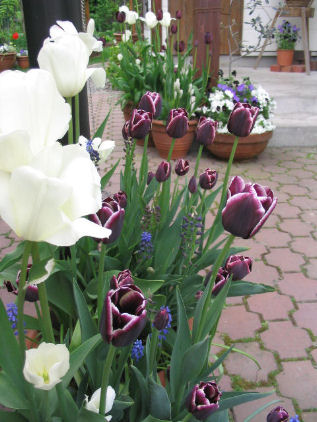By Jeff Wolfenden

Black walnut trees are beautiful. But for gardeners, it can be a curse, black walnut toxic to other plants.

Black walnut Juglone release, a toxic substance that can stop operations in the respiratory tract of more plants into the soil. Substance is present in all parts of the tree, from roots to leaves. Here are some tips for dealing with gardening and harmony almost black walnut tree.

Does not cut it down. If you cut down the tree, and will remain rooted in the soil, and it will continue to release plant, killing substances for several years.

Choose plants that are not sensitive to Juglone. Not all plants are sensitive to black walnut. Choose plants that are known to be less vulnerable to toxins.

Raised a family. Juglone may affect the entire park because of the spread of black walnut is enormous, but the poison in itself does not move efficiently through the soil.

The use of containers. Container gardening is often the best solution for plants that are sensitive to black walnut, especially if you're planting or under a tree near the drip line.

Promote good drainage. Make sure that the family garden is well drained, and this seems to mitigate the effects of Juglone.

Do not compost the garbage. Organic fertilizer in the garden you want to practically everything. But leaves the black walnut is not an ideal candidate for the compost pile.

Difficult to incorporate walnut trees in the garden, but with careful planning, which can reduce the effects of Juglone in your soil. If you do, and we hope to be able to grow in the garden healthy and abundant, despite the presence of black walnut.

Post Title → Black Garden
No comments:
Post a Comment